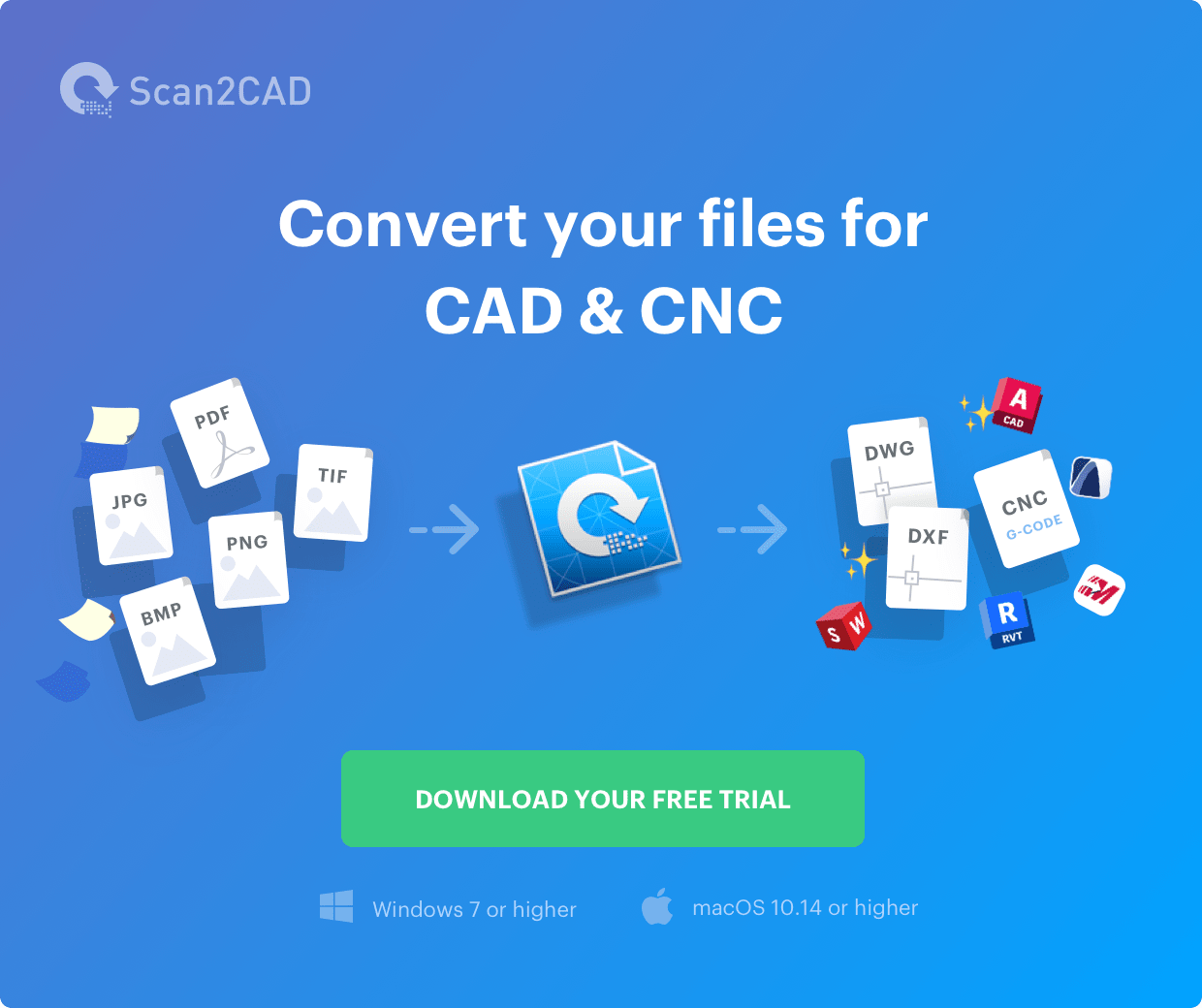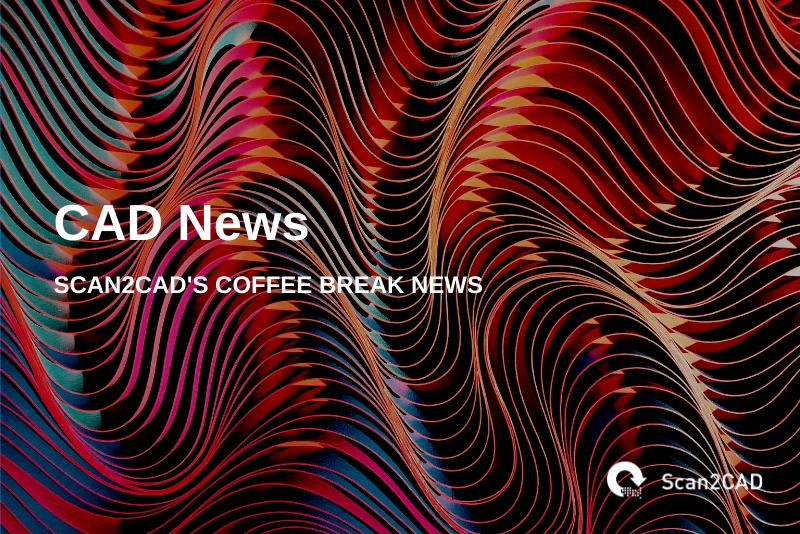It is the start of yet another month! But before we fully say goodbye to the previous month, it is time to take a look at some of the biggest and most interesting happenings in the worlds of CAD, engineering, technology, and design with this edition of Coffee Break News.
This month’s news round-up will cover Matterport’s announcement of BIM 360 integration with deep linking; a former AutoDesk CEO being appointed to BOX’s board of directors, and Panasonic designing mould cooling channels with generative design and hybrid manufacturing.
Other stories we also checked out include how a hospital in Italy is using 3D printing to treat coronavirus patients; a 3D-printed hands-free door opener created by Materialise; and 3D-printed face shields produced by Nottingham University for NHS.
This edition of Coffee Break News is packed with so much information, so let’s get right to it!
Matterport integrates BIM 360 with deep linking
Matterport has announced integration with Autodesk BIM 360 in order to better support collaboration on various construction projects. This integration will focus on the professional-level contractors who are currently using BIM 360 for their projects.
With this integration, teams utilizing BIM 360 for construction projects, particularly organization and optimization, will be able to access and explore Matterport scans and digital twins in addition to the information already stored in their BIM 360 Project Home dashboards. Matterport can create what is known as “deep links” to specific locations within a scan, thus increasing the speed of decision making by allowing annotations to link directly to specific questions and problems.
Other features of this integration include allowing users to view Matterport 3D models on BIM 360 project pages by adding a URL from Showcase, adding a Matterport digital twin to information requests to demonstrate the reason, access to digital twin of a job site, and more.
Tomer Poran, Director of Business Development for Matterport, said, “By simply adding the Matterport Partner Card into their BIM 360 Project Home, construction teams can activate the Matterport integration to streamline documentation across workflows and collaboration between stakeholders.”
James Cook, head of integrations for Autodesk Construction Solutions, added, “Embedding Matterport’s 3D walk-throughs into the BIM 360 Project Home dashboard provides construction team members spatial context alongside essential project data so they can seamlessly collaborate and make decisions from any location, saving time and money to keep projects on track.”
Former Autodesk President and CEO joins Box Board of Directors
Cloud content management company Box announced last week that Carl Bass, former President and CEO of Autodesk, has been appointed to its Board of Directors. Bass was also formerly the chief technology officer and chief operations officer at Autodesk. Bass currently serves on the board of directors of several leading technology firms today, such as Built Robotics, Zendesk, and Planet Labs.
Talking about the appointment, Box CEO and co-founder Aaron Levie said, “Carl led Autodesk through an exciting period of growth and transformation, and he is a fantastic addition to our Board. Carl’s years of operational experience building one of the defining software companies will be invaluable as we execute on our strategy to drive product innovation and profitable growth as we scale.”
Bass, meanwhile, said, “Box has built the industry leading cloud content management platform and as work environments continue to evolve globally, they have an incredible opportunity to reshape how businesses of all sizes operate. I know first-hand that great software can empower creativity and reshape the way entire industries work. I’m thrilled to bring my experience building large software businesses and working with leaders to deliver value and innovation for customers to the exceptional team at Box.”
Bass was part of Autodesk for 24 years, holding a number of executive positions. He was CEO of Autodesk from 2006 to 2017. He co-founded Ithaca Software and Buzzsaw, both of which were later acquired by Autodesk.
Panasonic develops mould cooling channels through hybrid manufacturing and generative design
Life Solutions Company of Panasonic Corporation has announced the development of a new hybrid manufacturing method for mould cooling water channels combining 3D printing, milling, and generative design. In a post on the Autodesk Redshift blog, Panasonic said this conformal cooling system reduces cooling time by 20% compared to conventional drilled channels.
Seiichi Uemoto, an analyst for Panasonic’s Life Solutions Company Manufacturing Engineering Center, looked for ways to use generative design for automatically creating metal mould cooling channels, after he did optimisation work on cooling loops designs for box-shaped metal moulds. Uemoto thought that automating the design process with generative would deliver new designs.
Panasonic then worked with Autodesk to apply generative design to deliver optimised design outcomes to the mould cooling water channels, particularly for mass-produced fan blades in duct ventilation systems.
Uemoto said, “Topology optimisation can produce only one solution from the conditions provided to the system. It is difficult to produce something with smooth contours from the generated result. But it became apparent to me that generative design would inherently result in smoother shapes. I felt with generative design, we would be able to effectively generate multiple concepts that took manufacturing principles into account.”
Four different mould samples were manufactured using this method, all using the LUMEX Avance-25 hybrid system combining metal 3D printing with milling for manufacturing complex parts with complicated internal structures. Uemoto said the results were “quite remarkable” and successfully achieved their goal of applying automated design.
Other stories we checked out this month:
-
This hospital in Italy is using 3D printing to treat COVID-19 patients, teaming up with Isinnova to manufacture respirator valves in 24 hours.
-
Belgian software and 3D printing firm Materialise is offering its 3D-printed hands-free door opener for free to users all over the world as its contribution to help with containment efforts.
-
Engineers from the University of Nottingham have also designed and produced 3D-printed PPE face shields for healthcare workers in the Nottingham area.

